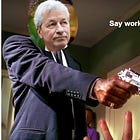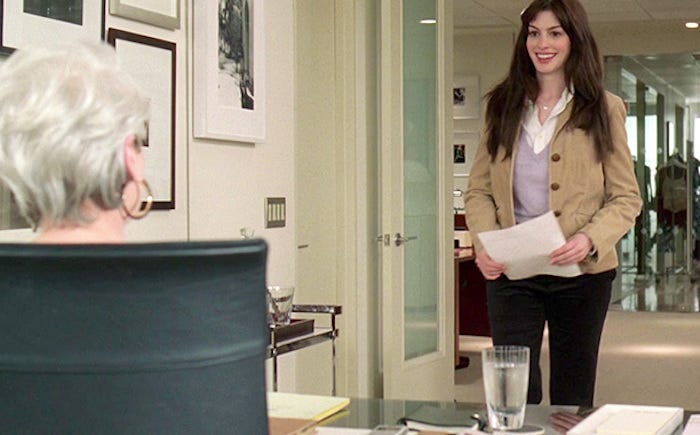How NOT to Hire: Lessons from the Worst Interviews Ever
The do's and don't for hiring managers unless you want to scare away talent
“Sorry for being late, our previous meeting ran long. Before we get started, I have one quick question. Why is your GPA so low?”.
That’s how one of my real job interviews began. A long drive outside the city, and countless hours researching the company, only to realize within the first 10 seconds that there was absolutely no way I was getting this job.
Turns out, the firm had an unofficial GPA cutoff. Mine was slightly below, so in their eyes, I was stupid, lazy, or both. The interviewers made it clear they felt I’d wasted their time. I left knowing I’d never work with them1.
Most would say I failed—I should’ve had a better answer, or a better GPA. Sure. But the hiring managers failed too. Their dismissive attitude didn’t just reject a candidate, it created a detractor that would never work with or recommend them.
You might wonder, what’s the big deal? The firm is still around and thriving today, but in finance, where reputation and relationships drive success, this is a costly mistake. Interviews aren’t just about assessing candidates; they’re a branding opportunity. Even if a hire isn’t made, candidates may become clients, partners, or refer future talent.
Any time you are in a hiring position, you need to make sure every candidate leaves thinking, wow! That’s a company worth working with. If not, you failed to properly represent your firm.
I’ve had over 100 job interviews for finance, technology and consulting roles and been on the hiring side a few times as well. This article breaks down the biggest hiring mistakes, how to avoid them and how to ensure you impress prospective hires in order to protect shareholder value.
If this week’s article does not interest you, please check out some other recent ones:
Tip #1 — Interviewer Goes First
Before getting into the weeds, you want to make sure the candidate is comfortable. Hitting them with a fastball before they even sit down can be destabilizing and sets the tone that you are trying to make this a tough interview. In some cases this might make sense, such as if you are trying to hire for a crash test dummy position, but generally this doesn’t accomplish much besides making the candidate dislike you.
Take my example above. The interviewer could have warmed me up a bit before slapping me with the GPA question. I still wouldn’t have gotten hired but at least I wouldn’t have realized she made up her mind before I got there. Before peppering candidates with questions about the adversity they had to overcome in their life or why they are so passionate about optimizing business processes, tell them a bit about the firm, the role and yourself.
Don’t ramble on for too long, aim for a 5 minute introduction that’s standardized for all the candidates interviewing for the role. This should give them enough time to settle in and get a bit excited for the opportunity if they have any concerns. If this introduction takes up more than half of the interview, you are talking too much. I once had a job interview, where the interviewer never asked a question. They simply spoke at me the entire time, until we realized the hour was up. It was a strange experience, don’t repeat it2.
Tip #2 — Let them Cook
Ask open ended questions and give them time to answer. This should be very obvious but you would be surprised the number of interviews (or dates) I’ve been on where the person across from me only asked Yes/No questions. This makes it very difficult to establish a rapport and these things should have been addressed with the recruiter or during the application process.
As an interviewer, you should spend more time listening than speaking, by asking questions that can be answered in one word, you make this difficult. What’s the point in asking questions you can train an LLM to ask for you? Instead of showing up to an interview to ask close ended questions, why don’t you go home and spend some time with your family? If you are going to abandon your child, at least make it worthwhile.
Don’t waste 5 minutes asking questions such as “Are you proficient in Excel?”. Everybody has a different standard of what it means to be proficient. A better question is to ask if they use VLOOKUP or Index Match, and why3? This is where you distinguish the pretenders from the real psychos.
As the hiring manager, you are trying to distinguish if the person you are speaking with has what it takes, you need to give them the chance to do it. Some people are natural communicators and don’t need much direction. Some candidates might be nervous/introverted, in this case you’ll need to pull it out of them. You do this with smart, open ended questions.
Tip #3 — Personality as a Perk
Many interviewers forget something key. You need to sell good candidates on why they should want to work with you. If you are trying to hire an “A Player”, you probably aren’t the only company vying for their services. In these situations, you have two options:
Make the candidates a financial offer they can’t refuse
Convince them you offer the best environment
If your company has an HR department, you probably can’t pursue the first option. Since you won’t be able to offer the candidate generational wealth4 you will need to win them over the other way. Not every candidate will be attracted by the same perks but a pretty universal one is their relationship with their boss. Candidates rarely get a chance to meet with their entire teams before starting the job, but in most cases, their eventual superior will serve as a hiring manager.
One of the biggest determinations of an employees satisfaction at work, is how they view their boss. As a manager, it’s not always possible to give your subordinates the career development, advancement opportunities or salary they want but if they trust, like and respect you, they can overlook many of the missing elements. This is why it’s critical that during the interview process, candidates come out of the meeting thinking they would want to work with you.
There are different ways to do this. You can impress them with your previous accomplishments or your vision for the successful candidate but just being likeable will go a long way. Somebodies career has a major influence on their mental health and wellbeing; don’t start exhibiting red flags during the interview, or you’ll turn off great hires and attract the wrong people (More on this later).
Tip #4 — Show a United Front
You might not like or agree with everyone you work with, but when speaking to a prospective employee, at least pretend you are aligned. It’s very destabilizing to a candidate when they get mixed messages from different representatives of the same company.
I once interviewed at a wealth management firm for an equity research analyst role. A VP asked people in his network and my name came up. He reached out, asking me to come by the office to interview with him and the Managing Director (MD). Once the meeting started, I learnt that the MD was his mother. To make matters worse, she was unaware the firm wanted to hire a new analyst. They decided to discuss the proposition of adding somebody to the team, in front of me. Needless to say, they had differing views on the matter and after 45 minutes, I left their office unsure if I got the job, or if there was even a job to be had at all.
This might seem extreme, but I’ve had other interviews where two people on the hiring side were openly disagreeing with each other and it was awkward and confusing. Don’t do this.
Tip #5 — Don’t Look Stupid
Furthering tip #3, it’s difficult to convince an “A player” to join, if they don’t see you as an A player. Some people will be impressed by fancy titles, others will not. Coming off as likeable is good, but on it’s own probably won’t be enough to win somebody over. People love Golden Retrievers but wouldn’t trust them with their careers.
This is why it’s important to come prepared to interviews, and avoid saying things that will kill your credibility. I was in an interview with somebody claiming to be a big reader, so I asked them what they had read recently. They mentioned a book, I knew well. When I asked them what the book was about, they couldn’t answer. The rest of the interview went great, so I managed to look past it, but these are the type of situations you want to avoid.
Imagine a junior accountant interviewing at an audit firm, only to realize the partner knows less about accounting than they do. Ten years later, when that junior becomes a successful CFO, do you think they’d hire that partner?
Final Thoughts
Remember, hiring isn’t just about filling a role—it’s about attracting the best people and shaping your company’s reputation. The best hiring managers know interviews are a two-way street. If you dismiss candidates too quickly or fail to engage, you’re not just rejecting an employee, you’re creating a detractor.
Set the right tone, ask thoughtful questions, and show why you’re worth working for. Even those you don’t hire should walk away thinking, That’s a company I’d love to work with someday.
I hope you enjoyed today’s article. Please Subscribe or Share Some Feedback in the Comments
A few years later, when my resume was more polished and had more suitors, the same firm reached out for another role. As you can probably guess, I took my talents elsewhere. I thought this was an exceptional case but quite recently I heard a similar story at a different firm, except they told them this after 4 rounds of interviews, including a case after 3 months.
I was offered the job. Perhaps I should have spoken less in my other interviews.
There is only one right answer to this question.
Candidates don’t value your company stock options nearly as much as you think they do.










“A better question is to ask if they use VLOOKUP or Index Match, and why?” The only right answer is neither of them! XLOOKUP, because it’s an Index Match wrapped into an IFERROR and the syntax is much cleaner